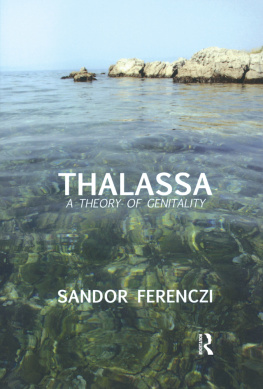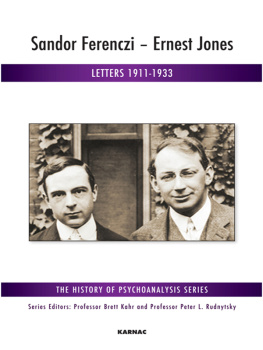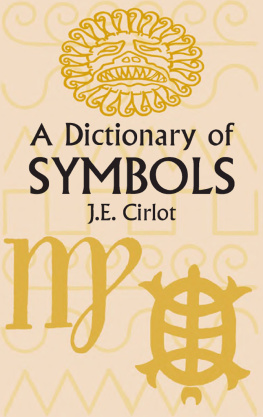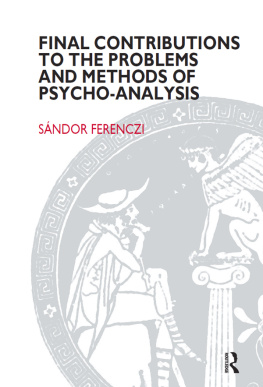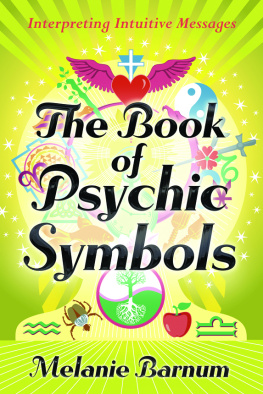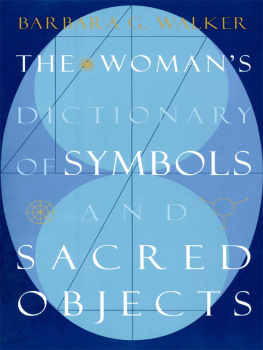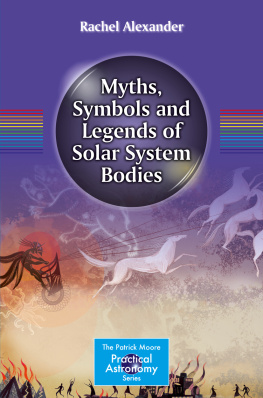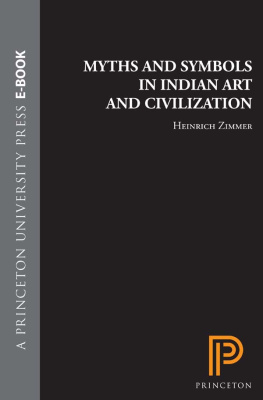THALASSA: A THEORY OF GENITALITY
Thalassa
A Theory of Genitality
By Sandor Ferenczi, M.D.
Translated by
Henry Alden Bunker, M.D.
Published 1938 by The Psychoanalytic Quarterly, New York
Published 1989 by Karnac Books Ltd.
Published 2018 by Routledge
2 Park Square, Milton Park, Abingdon, Oxon OX14 4RN
711 Third Avenue, New York, NY 10017, USA
Routledge is an imprint of the Taylor & Francis Group, an informa business
Authorized Translation from the original German version entitled Versuch einer Genitaltheorie
Copyright by The Psychoanalytic Quarterly
All rights reserved. No part of this book may be reprinted or reproduced or utilised in any form or by any electronic, mechanical, or other means, now known or hereafter invented, including photocopying and recording, or in any information storage or retrieval system, without permission in writing from the publishers.
Notice:
Product or corporate names may be trademarks or registered trademarks, and are used only for identification and explanation without intent to infringe.
A C.I.P. for this book is available from the British Library
ISBN: 9780946439614 (pbk)
Contents
Guide
In the autumn of 1914 the demands of military service broke in upon the psychoanalytic activities of the author of this work and exiled him to a small garrison town, where he found the duties of chief medical officer to a squadron of Hussars somewhat of a contrast to the pressure of activity to which he had been accustomed. Thus he came to occupy his leisure hours with the translating of Freud's Drei Abhandlungen zur Sexual-theorie; and it was almost inevitable that he should have elaborated in his mind certain ideas suggested by this work and have set down, however sketchily, the results. These notions revolved around a fuller elucidation of the act of coitus, conceived in the Abhandlungen as the final phase in the total course of sexual development, to be sure, but not there dealt with in any detail from the standpoint of its evolution and development. These ideas gradually crystallized into an onto- and phylogenetic theory which in 1915 I submitted to Professor Freud on the occasion of a visit of his to my military station. Later, in 1919, I repeated the exposition of this theory before him and before a small group of friends, and on both occasions was urged to write it out for publication. My failure for some time to act upon this invitation, though due in part to resistances engendered by the singularity of my material, was determined also by objective considerations. My equipment in the natural sciences did not in any wise exceed that of a physician who in his time has studied various branches of natural science with every diligence and out of a special fondness for them, but who for nearly twenty years has not been concerned with them to any detailed extent. And yet my theory dealt with matters which were at that time the very center of biological discussion. I had at my disposal as works of reference only the fine Zoology of Hesse and Dotlein, and one work each of Lamarck, Darwin, Haeckel, Blsche, Lloyd Morgan, Godlewsky, H. Hertwig, Piron and Trmner;
In my speculations on the problems of genitality I boldly transferred to animals, to their organs and the parts thereof, and to their tissues, all kinds of processes with which I had become acquainted through psychoanalysis; and if with the aid of this transposition I arrived at new points of view, I nevertheless became guilty of a psychomorphism which, as a methodological excess, weighed upon my scientific conscience. On the other hand, this train of thought compelled me to make use of observations on animals, data from embryology, etc., as aids in the explanation of mental states; as for example the status of the psyche during coitus, in sleep, and so forth. According to my conviction at that time this too was forbidden; indeed, I had learned in school to consider it a fundamental principle of scientific work to keep strictly separated from each other the respective points of view of the natural sciences and of the mental sciences. The fact that in my speculations this rule was more honored in the breach than the observance was one of the reasons which restrained me from publishing my theory of genitality.
However, at the time when I was immersed in the Drei Abhandlungen, I was extraordinarily impressed by the fact that Freud was able to evaluate experiences gained in the field of the treatment of the psychoneuroses, and therefore in the mental realm, in such a way as to be in a position to reconstruct with the aid of these an entire chapter of biology, namely, the knowledge of sexual development. And in the Foreword to my translation I extolled his work as a significantly forward step in scientific methodology, as the reestablishment of an animism no longer anthropomorphic.
Gradually the conviction grew upon me that such an importation into psychology of concepts belonging to the field of natural science, and into the natural sciences of psychological concepts, was inevitable and might be extremely fruitful. As long as one is satisfied with mere description, an exact tabulation of the details of a process is sufficient, and one is very easily able to confine oneself within one's own particular scientific boundaries. As soon, however, as one desires, in addition to description, to make some assertion regarding the meaning of a process, one involuntarily grasps for analogies in alien scientific fields. The physicist is able to make the phenomena of his science comprehensible only when he compares them to "forces", "attraction", "repulsion", to "resistance", "inertia", and the likewhich are simply things with which we are acquainted from the mental side alone. But Freud also was compelled to reduce mental functioning to topographical, dynamic, economic, and therefore purely physical processes, for otherwise he was unable to approach their final explanation. Ultimately I perceived that we need not be ashamed of this reciprocal analogizing, that on the contrary it should be vigorously pushed as a highly necessary and, indeed, inevitable method. In later works I no longer had any hesitation, in fact, in recommending this working method, which I termed a "utraquistic" one; and I expressed the hope that it would enable science to answer even those questions in the face of which it had previously been helpless.
Once the right is granted to make freer use of analogies previously despised, it is perfectly obvious that these should be drawn from fields as remote as possible. Analogies derived from related fields would tend to be, indeed, mere tautologies, and as such could hardly serve the function of proof. In scientific statements which purport to be synthetic rather than analytic findings, the subject may not be repeated in the predicate; this is the familiar fundamental rule of every definition. Or, as a different approach, let us utilize the fact that materials are usually measured by a material of another kind; thus we easily may proceed to measure the material by the non-material, and vice versa.
The briefest formulation of this knowledge would be that all physical and physiological phenomena require a meta- physical (i.e., psychological) explanation and all psychological phenomena a meta-psychological (i.e., physical) one.
Emboldened by the acquisition of this insight and by the fact that the results at which I arrived with the aid of this method have found unexpected confirmation in the most recent and quite differently oriented investigations of others, I have decided upon the publication of the present volume.

